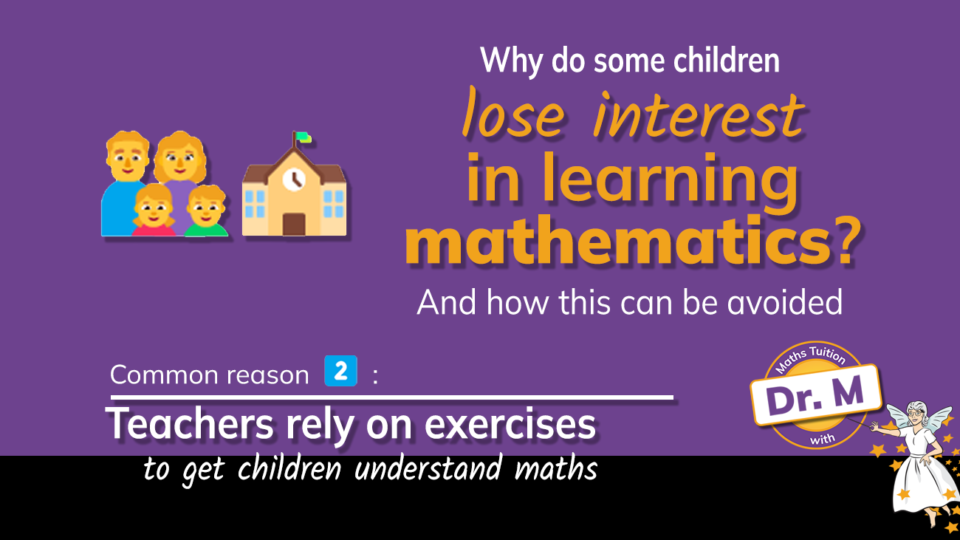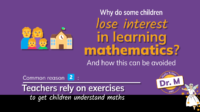Why some children ‘unexpectedly’ lose interest in learning maths and how this can be avoided. Part 2.


👨👩👧👦🏫 Common reason No 2️⃣
Helping your child to cross
💜THE GREAT MATHS BARRIER🧠+💜
Traditionally, teachers and instructors in all areas of life – be it sport, art, music, science or driving a car:
- Explain the theory to students
- Get them do some practice and
- Gradually practice makes it perfect.
❗But this teaching approach does not work well with maths.
This is because the process of maths learning is affected by our misconceptions much more strongly than practically all other skills and subjects on Earth!
I call them “maths brain-twisters”.
Let me illustrate the effect of maths brain-twisters on maths learning using the analogy of driving a car.
Imagine a driving instructor clearly explains the theory, but a student firmly thinks that, say, a clutch pedal is a gas pedal. What do you think this student will feel during their driving lessons and what will happen to this soon-to-be-a-driver when he is on the road alone? A crash?
And this is exactly what happens with learning maths.
Maths brain-twisters distort a child’s vision of the world, but the child firmly believes that their perspective is perfectly correct! As a result, their maths learning becomes a tangled mess. They end up learning maths without a proper understanding of it (see examples in this video).
Sooner or later, children get tired of muddling, lose belief in themselves and the interest in maths.
A “crash”.
So, what should we do to help?
❌ We should not rely on exercises to get a child to understand maths.
🟪 Instead, we should help a child fix their maths brain-twisters.
Solving maths exercises without the proper understanding of the theory puts a child under way too much pressure, exacerbating their fear of maths. This reduces their chances of understanding maths properly.
We have to concentrate on helping a child to fix their brain-twisters first, as required for a topic in question.
🟪 Exercises in maths should be given to children much later, only as practice to make their new maths knowledge perfect.
❓Do you remember your most favourite and least favourite maths exercises at school?
Share in the comments below.
—
🟪 Proper understanding of maths concepts requires the correct maths thinking.
🟪 Once children develop the correct maths thinking, they grow to enjoy learning maths and start to see how to use it independently.
📢 Contact me me for tips and ideas on how to help your child with their maths learning.
P.S.
🟪 I’ll gradually reveal all harmful shortcuts, acronyms, cliches and common maths blunders that, as I observe, commonly appear everywhere in English speaking countries – at schools, online, and even in textbooks.
🟪 There are no shortcuts to the proper understanding of maths. Maths explanations must be as perfect and precise as maths itself is, or children will be confused.
🟣 Only proper understanding of maths concepts makes learning maths enjoyable. This requires the correct maths thinking.
If your child does not enjoy learning maths it means only that they have not developed the correct maths thinking yet.
The penny may drop eventually, but it doesn’t always do.
It’s always better to help children develop the correct maths thinking asap to ensure that the risks for a child to lose interest in maths “unexpectedly” are dramatically reduced.
📢 Worried about your child’s maths learning? Contact me to discuss how you can help them.


